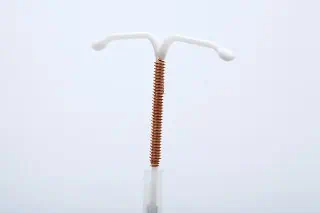
Hormonal birth control can negatively affect metabolic health and contribute to weight gain. Some types are more likely to do so than others.
Lara Briden - The Period Revolutionary
Leading the change to better periods and hormones
A discussion of the benefits and side effects of the copper IUD (ParaGard) and the hormonal IUD (Mirena).

Hormonal birth control can negatively affect metabolic health and contribute to weight gain. Some types are more likely to do so than others.

Almost all types of hormonal birth control switch off ovarian function and, therefore, switch off the ovarian hormones estradiol, testosterone, and progesterone. Here’s a bit more about each method.

Some basic body literacy:
A proper period or menstrual bleed is a bleed at the end of a natural ovulatory cycle. Any other type of bleed is either a pill bleed (a withdrawal bleed from stopping contraceptive drugs) or an anovulatory cycle (a bleed when there has been no ovulation).
A menstrual cycle is, therefore, an “ovulatory cycle,” in which ovulation is the main event.
⭕
 The copper IUD or coil (ParaGard or the new Miudella) is a non-hormonal method of birth control. Its main advantage over hormonal methods is that it contains no contraceptive drugs and permits natural ovulatory cycles.
The copper IUD or coil (ParaGard or the new Miudella) is a non-hormonal method of birth control. Its main advantage over hormonal methods is that it contains no contraceptive drugs and permits natural ovulatory cycles.